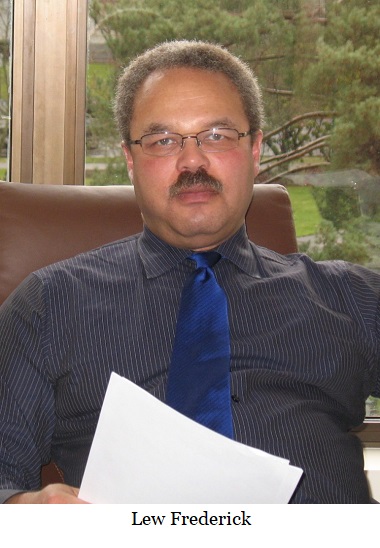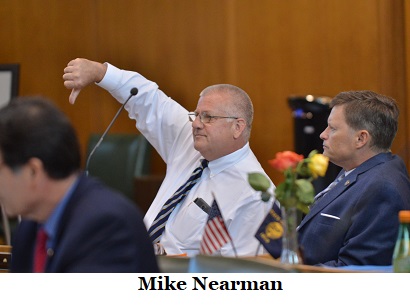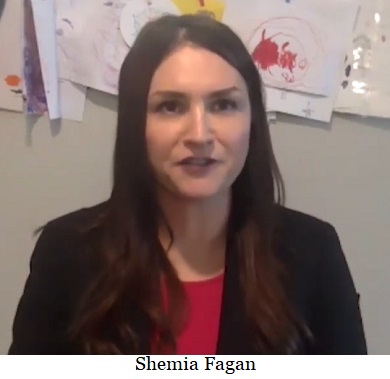
On this day, August 20, 2020, about 100 leftist demonstrators blocked traffic in Portland, vandalized an immigration building, set fires to dumpsters, and threw rocks and glass bottles at police. Police arrested three people.
 Post an Event
Post an Event
| Benton County Republicans’ Private Fundraising Event, “Bent-on Boots and Bling” with Trey Taylor |
| Friday, September 5, 2025 at 5:00 pm |
| Featuring Trey Taylor
Music Private Event
Friday, September 5, 2025 5:00-5:30 pm VIP Reception
5:30-8:00 pm Heavy Appetizers,
Auction, Concert
Red: $750 VIP Reception
Front Row Table Sponsor
White: $500 Table Sponsor
Blue: $50 per person
Limited Seating. Get Yours Now!!!
Support Local
Dress up: Bling, Cowboy, Patriotic Benton County Republican
FUNDRAISER
www.BentonGOP.org
Get your tickets today at:
https://www.bentongop.org/event-details/benton-county-republicans-fundraiser/form
About Trey:
Trey is the youngest African American Man in Country Music History. The Denver Post wrote
"It's impossible to miss his enthusiasm. With a fondness for cowboy boots, gaudy colors and dazzling jewelry, Trey Taylor could stand toe to toe with any of the Pop, Country or even Rap
contemporaries of his generation.“ |
| Trysting Tree Golf Club, 34028 NE Electric Rd., Corvallis |
Leftist extremists continue to vandalize the station
Over the past several months, the Salem Police station in Salem, Oregon has
incurred almost weekly vandalism.
During anti-police protests in front of the building, leftist extremists have applied chalk, other substances, and signing to the sidewalks, planters, stairways, walls and portico of the building.
The graffiti has done varying degrees of damage to the facility.
Typically, City of Salem facilities crews have been able to wash off the graffiti, but recently the damage appears to be longer lasting if not permanent. One evening of damage required the construction company for the building to resurface and retexturize the cement steps.
Just the removal of the graffiti has cost the City of Salem hundreds of dollars in staff time, with costs to the contractors being much higher.
Balancing the public’s right to the freedom of expression and gathering with unlawful actions is a priority, according to the Salem Police department. They claim that because of that, they have used discretion toward the minor damage to the building in the recent past.
As this damage has become more costly and permanent, they have stated that they are now forced to set boundaries and limits as to where similar activities can occur on the property. The Salem Police Department is now apparently warning that if these limits are not respected, enforcement action may be taken.
--Bruce Armstrong| Post Date: 2021-05-08 05:42:48 | Last Update: 2021-05-08 10:30:53 |
More “Environmental Justice“
Passed out of committee on party lines,
HB 2357 will strip the budget authority of Oregon Forest Resources Institute (OFRI) to 33 percent and silence them from using funds to educate the public related to forest practices, including the adequacy or effectiveness of any particular forest practice. They also cannot expend funds on educational materials, trainings, tours or other outreach that does not include an environmental conservation perspective, or to influence legislation or rule-making. So, regardless of the science or best practices, if it doesn’t support the Governor’s climate change conservation perspective, OFRI shall remain silent.
The
Oregon Forest Resources Institute was created in 1991 to advance public understanding of forests, forest management and forest products and to encourage sound forestry through landowner education. Intended as an advocate for the timber industry, HB 2357A removes OFRI board’s representation of the timber industry as the authority that establishes the privilege tax rate and replaces it with the
State Board of Forestry. The decisions for the timber industry moves from a 13-member board of stakeholders to a seven-member citizen board of which three must have income from forest products.
Oregon’s timber industry took a big hit in 2009 that took four years to peak just short of 2004 harvest levels. However, the number of wood processing facilities continue to decline. OFRI identifies as a centralized gateway of shared ideas and collaborative dialogue regarding the delicate balance between the environmental, social and economic values provided by our forests. However, last year the Oregonian/OregonLive, OPB and ProPublica Local Reporting Network reported that OFRI was in opposition to the university climate research and questioned relationships with lobbying groups. The Governor requested an audit pointing to public records and media reports that “allege a variety of statutory and ethical concerns.â€
A D V E R T I S E M E N T

A D V E R T I S E M E N T
Erin Isselmann, OFRI’s executive director, responded in an email that the institute welcomes the audit from the secretary of state. “We look forward to working with the audit team and learning from their analysis and recommendations.†She has previously said that, under her leadership, the institute has operated “under the highest ethical standards.â€
Not wanting to wait for an audit, Representative Andrea Salinas (D-Lake Oswego), Representative Paul Holvey (D-Eugene) and Senator Jeff Golden (D-Ashland) introduced HB 2357A, which puts Oregon Forest Resources Institute under a magnifying glass requiring they record all interactions with elected officials, boards and commissions and agencies, and report a summary to the Governor posting it on
their website.
And what happens to the other 66 percent of the privilege tax? HB 2357A establishes the Sound Forestry Practices Sub-account assigned to promote forest health, and the Family Forest-lands Sub-account to provide community support for small forest owners. The allocation of revenue from privilege tax will deposit 50% to Sound Forestry Practices Sub-account, 17% to Family Forest-lands Sub-account, and the 33% to OFRI Fund.
The question remains as to where this will leave our struggling timber industry when their own stakeholder board can’t advocate for them and their best practices?
--Donna Bleiler| Post Date: 2021-05-08 04:40:30 | Last Update: 2021-05-08 05:27:26 |
“Public corruption is the enemy of good governance.â€
In the wake of a
Secretary of State Audit on the Oregon Government Ethics Commission, House Republican Leader Christine Drazan (R-Canby) released the following statement of support ahead of today’s House Rules Committee hearing on four bills related to government ethics.
“Public corruption is the enemy of good governance. Our watchdog against corruption on behalf of the people of our state is the Oregon Government Ethics Commission.
The recently released audit of the Ethics Commission by the Secretary of State highlighted areas for improvement and I am pleased to see that the Ethics Commission has embraced these recommendations with the legislation before the House Rules Committee today.
But these reforms are just the beginning of what is needed to ensure Oregon’s public servants are operating under the highest standards with adequate enforcement. We must ensure our Ethics Commission has the experience and resources to uncover and investigate ethics violations while remaining independent, transparent and accessible.
This is an important opportunity to adopt the recommendations from this in-depth audit to strengthen enforcement and accountability to foster public trust in Oregon’s government and elected leaders.â€
SB 60,
SB 61,
SB 62 and
SB 63 will be heard by the House Committee on Rules. These Senate bills seek to address shortcomings in Oregon’s ethics laws, based on a recent audit from the Secretary of State’s office that compared Oregon’s government ethics rules with other states.
--Staff Reports| Post Date: 2021-05-07 10:49:40 | |
The seven-mile buffer will pit one Rural Fire Protection District against another
The year 2020 saw some of the worst wildfires in state history, and Senator Frederick (D–Portland) thinks that he has found a solution to protecting those rural areas of the state from fires in the future. He has introduced
SB 605 which has moved through the Senate and has now had a hearing in the House Committee on Agricultural and Natural Resources.
Currently Under
ORS 478.115, counties have the authority to determine the territory included in a rural fire protection district. Originally,
SB 605 mandated that improved lands, or new improvements that were within seven road miles of a fire station must be annexed by the county.
However, the Senate Natural Resources and Wildfire Recovery Committee amended the measure so that it removed the mandate and replaced it with
“Upon request by a rural fire protection district, requires a county board (County Commissioners) to annex, into the district, lands that are either within seven road miles of a fire station in the district or that are brought within seven miles of a station by a new road, and that are not subject to district tax assessmentâ€.
During hearings in the Senate, Senator Heard (R- Roseburg) asked if someone did not want to be annexed in and they needed services could they opt out and then be able to pay for the services they needed if they had an emergency? Fire Chief Bullock, from Douglas County District 2, responded to the question stating that “the challenge we have faced is that we have already had some of those people refusing to pay bills for services we already provided to themâ€.
The amended bill moved out of committee and to the full senate where it passed on a near party line vote. It was then assigned to the House Agriculture and Natural Resources Committee where it received a hearing this week.
During that hearing the bill received more opposition than it did in the Senate. Oregon Family Farm Association brough up a concern in written testimony that “
SB 605 contains an arbitrary seven-mile buffer that in some parts of the state will pit one Rural Fire Protection District against another RFPD. While that may result in the best delivery of service to the property owner, the bill doesn’t exempt properties that are already served by an existing RFPDâ€.
Commissioner Craig Pope from Polk County, who himself spent 27 years a volunteer fire fighter and chairman of the board of one of the largest combination fire districts in the state, testified to the committee as well. He said that he is very supportive of “firefighters and the resources they need to do their jobs effectively and safelyâ€. However, he is opposed to the bill because it removes public due process from the annexation process and forces County Commissioners into rubber stamping annexation which is currently not the practice. In addition, he was concerned that this was a Douglas County Fire district No. 2 issue that could end up being a burden for all of Oregon counties. He felt that the Association of Oregon Counties (AOC) could have a much more meaningful conversation than legislating it.
James Williams, Lake County Commissioner, also testified in opposition to the bill. He informed the committee that “the ISO rating for a landowners fire insurance is not affected by simply drawing a circle around a fire district. The ISO rating is still entirely based around boots on the ground, infrastructure and apparatus availabilityâ€.
Rep. Marsh (D – Ashland) followed up on that line of questioning asking “where did the 7 miles came from itâ€. Chief Bullock stated that is it based on the parameters of the ISO. There are three levels of rating in the ISO.
- The insured location is within 5 road miles of a fire station and is 1,000 feet from a fire hydrant.
- The insured location is within 5 road miles of a fire station, but further than 1,000 feet from a fire hydrant.
- The insured location is further than 5 road miles of a fire station and 1,000 feet from a fire hydrant, but the firefighting organization meets the hauled water criteria. The boundary is then 7 miles from a fire station.
What is odd about the bill, is that neither the Senator or Representative from the Douglas County area signed on as a Chief Sponsor or regular sponsor to the bill. It was brought to the Committee by the Senator from Portland. However, the question was never asked in the Senate or the House why Senator Heard (R – Roseburg) or Representative Leif (R – Roseburg) did not bring the bill to the attention of the Legislature. In addition, if this was a Douglas County issue, as raised by Chief Bullock who requested the bill, then why did Tom Kress, Douglas County Commissioner testify against the bill?
The bill will remain in committee until the committee chooses to have a work session and vote. That must occur by May 28th or the bill is dead.
--Terese Humboldt| Post Date: 2021-05-07 10:37:56 | Last Update: 2021-05-07 10:49:40 |
Will disproportionately affect low income households
Governor Kate Brown’s bill,
HB 2165, carried by Representative Karin Power (D-Milwaukie) passed the House along party lines. Democrats are claiming the bill will increase the affordability of electric vehicles (EVs) by removing the sunset on the Oregon Clean Vehicle Rebate Program, and doubling the Charge Ahead rebate offered by the program up to $5000, but not less than $2500. It also makes eligible vehicles up to $60,000 retail price.
“Increasing the value of the Charge Ahead rebate will better meet the needs of low- and moderate- income families, helping address the upfront costs of purchasing an EV, and will help household budgets by saving folks money on fuel and car maintenance,†said Rep. Karin Power. “This work is especially important for the health of communities that live near transportation corridors, and for our youngest Oregonians whose lungs are still developing. This bill is a next step in supporting cleaner air, electrification, and grid resilience across our state.â€
What the House Democrat announcement fails to point out is the bill is divided between two main activities: Transportation Electrification & Infrastructure, and Zero Emission & Electric Vehicle (ZEEV) Rebates.
The ZEEV portion has to do with increasing the Charge Ahead Rebate program (zero-emission vehicle rebates). The rebates are funded through a tax of 0.5% on new vehicle value imposed on dealers for the privilege of selling in Oregon that increases the cost of a $50,000 vehicle by $250. So, in reality it doesn’t make an electric vehicle any more affordable, it simply makes up for this added tax. That tax revenue is expected to average $31 million a year, and will annually transfer $12 million to the Charge Ahead Rebate program.
In 2019, according to data from Cox Automotive, the average cost of an electric vehicle decreased from $64,300 to $55,600. Depending on the range for recharge, low range vehicles could run as low as $36,000 and long range at $106,000 or more.
The Transportation Electrification & Infrastructure portion of
HB 2165 directs an electric company to collect an amount ofone quarter of one percent of total revenues from retail electricity consumers and expend those funds to support and integrate transportation electrification. It also allows utilities to pass investment costs to customers that may include expenditures outside the utilities’ service territory. Where the cost of purchasing an electric vehicle may be a wash under the bill, every electric rate payer will see an increase in their service cost.
This bill is currently headed to the State Senate.
--Donna Bleiler| Post Date: 2021-05-06 10:23:23 | Last Update: 2021-05-11 15:47:19 |
Sensationalism abounds
The BIPOC (Black, Indigenous, and People of Color) Caucus in the Oregon legislature reinforces their minority status every time they allow someone else to speak for them. They have sided with the majority party all session to make sure they are recognized and given status in every measure introduced. But, while they want recognition, they piggyback onto House Majority Leader in
accusations against Rep. Mike Nearman.
The BIPOC caucus would seem to have some difficulty in proving their case that Representative Mike Nearman is guilty of endangering them by having exited through a door at the Capitol.
Seemingly having a vendetta against the Republican, the group makes another claim, which has been found to be loaded with inaccuracies in stating the following:
“He is a member of hate groups, including the anti-immigrant group Oregonians for Immigration Reform, where he has served as a board member. This past Saturday, he was scheduled to speak at a rally in Salem attended by white supremacist and nationalist groups, including the Proud Boys and The Three Percenters militia movement. These are white supremacist hate groups and their racist, violent tactics have no place in our Capitol, the underpinning of our vibrant, diverse democracy.â€
They seem to be mindlessly echoing the unfounded accusations of the Southern Poverty Law Center (SPLC), who has been
caught in a number of lies trying to push their narrative that most U.S. citizens are inherently racist. The group has accused countless other groups of being racist, if they aren't aligned with the Democrat party.
Democrat House leaders issued a statement in January in response to the BIPOC caucus on committing to a truly equitable future:
“Members of the BIPOC Caucus and other community leaders have continually pointed out structural problems big and small that conspire to exclude diverse voices in the Legislature. …We are committed to confronting the past while taking steps to build a future that is more truly equitable, one that centers the needs of people who have been oppressed, discriminated against, and kept out of the halls of influence for too long…. we commit to a brighter future for every Oregonian.â€
Does the BIPOC caucus think they are the only group that has been trampled on that needs recognition, and they have a privilege to hate and not be hated, to show bias but not be discriminated against? It seems they have become the equivalent to the little boy who cried wolf one too many times.
Their sensationalism continues:
“Nearman is set to appear in Marion County Court on May 11. As Black, Asian, and Latinx legislators, we do not have the luxury of waiting this out. Every day that Nearman continues as a state legislator, a clear message is sent: your lives, your wellbeing, your safety, do not matter. We call on members of all caucuses, especially House Republican leadership, to call on Nearman to resign and denounce white supremacy, xenophobia, and white nationalism. Our right to feel safe depends on it.â€
Nearman is well known for his training on the Constitution. Does BIPOC know that their implication against Rep. Nearman’s character is quite unfair, in light of Oregon Constitution Article 1, Section 1? In this first section, the Oregon Constitution states: “Natural rights are inherent in people. We declare that all men, when they form a social compact are equal in right.â€
Supposed "diversity measures" are questionable under the Oregon Constitution Article 1, Section 20, which states: “Equality of privileges and immunities of citizens... No law shall be passed granting to any citizen or class of citizens privileges, or immunities, which, upon the same terms, shall not equally belong to all citizens.â€
If Nearman’s association with certain groups is wrong, then why doesn't extremist groups such as Antifa rioting in Portland for over a year deserves equal denouncement. The rioting and destruction of inner city businesses has certainly disproportionately affected those groups of people they claim to represent. Those extreme leftist groups certainly instigate more vandalism, pillage, arson, and rioting that makes every citizen feel unsafe.
One would think that The BIPOC caucus would want to work with Representative Mike Nearman (Independence) to find common ground with everyone, regardless of skin color if their real goal truly is a safer Oregon for all.
--Donna Bleiler| Post Date: 2021-05-06 09:42:13 | Last Update: 2021-05-06 15:37:55 |
It’s just two counts, both of which are misdemeanors
After a lengthy four month investigation, State Representative Mike Nearman (R-Independence)
has been formally charged on two counts. Both charges are only misdemeanors.
Oregon House Democrat Majority Leader Barbara Smith Warner has made a statement in response to the announcement that Representative Mike Nearman (R-Independence) will be facing misdemeanor charges for walking out a door at the Oregon State Capitol. She claims he allowed white supremacists and other extremists into the State Capitol on December 21, 2020. Smith Warner is calling for Nearman to voluntarily resign. This was expected by many observers, as it in line with the Democrat leader's entirely partisan approach.
Representative Nearman is charged with official misconduct and second degree criminal trespass, according to court documents. Both charges are misdemeanors.
House Majority Leader Barbara Smith Warner claims to lead her caucus on building "a more equitable Capitol", however, when House Speaker Tina Kotek’s staffer, Kristina Narayan was
arrested during a riot for interfering and not obeying a Police Officer, the Majority Leader condoned her action by supporting
HB 3164, which limits the circumstances under which a person could be charged with interfering with an officer. In this light, it doesn't seem equitable to attack the Minority Republican legislator for a lesser crime.
It seems that Majority Leader Smith Warner may be likely playing partisan politics in her position on the Nearman walking out the Capitol building door.
“When Rep. Nearman opened the door of the Capitol to armed, violent extremists, he not only endangered the physical safety of every person, legislator, and staff in the building, but also the very foundation of our democracy. “
The video shows no guns, and no extreme violence. The timing of the investigation and announcements seem to indicate that the Oregon Democrat leaders were likely attempting to correlate the incident with the national outrage of the U.S. Capitol incident that occurred on January 6th of this year.
The protestors present at the Oregon Capitol on December 21st seemed to have been lobbying for the public to have legal access to their legislative Capitol building as required by the Oregon Constitution.
"Freedom of expression represents the foundation of democracy. Every person - including members of my staff - has the right to stand up for what they believe and engage in nonviolent resistance." stated House Speaker Tina Kotek.
Does her statement apply to those wanting to lobby their elected representatives at the Capitol on December 21, or only to her staffer, Kristina Naranyan, who was charged with crimes during a Portland Oregon Leftist riot?
If you watch the video to the end, the police and security leave and people go in and out of the door left open by security. They do not "raid the Capitol" as Majority Leader Smith Warner has suggested. If Rep. Nearman is to be found guilty of opening the door, are not the security guards guilty of the same crimes for leaving that same door open only 10 minutes later? There had been no instructions to the legislators that day as to what entry and exit protocol was to be.
Many observers are putting forth the explanation that everything Representative Mike Nearman stands accused of that day was merely the Republican legislator advocating for fair and equal representation for all Oregonians.
“Let’s set up some options where people have freedom to do what they want,†Nearman said. “If you want to be masked and you want to be quarantined, go be quarantined. If you want to be out in public and that’s an acceptable risk to you then you can do that.â€
Senate Minority Republican Leader Fred Girod (R-Lyons) issued a statement following the announcement of charges filed against Representative Mike Nearman:
“Democrats have overseen widespread and constant violence in Portland. Progressives have turned a blind eye to assaults against first responders, vandalism, and looting with sparse criticism from major Democrats. At this point, it looks like Representative Nearman simply opened a door. No matter who you are, no one is above the law. We should trust our judicial system to air out all the facts and judge them fairly.â€
--Bruce Armstrong| Post Date: 2021-05-05 14:09:39 | Last Update: 2021-05-05 14:56:38 |
Audit finds need for improvement in Oregon
An
audit has been released by the Oregon Secretary of State’s Audits Division that finds that the Oregon Government Ethics Commission (OGEC) and state ethics laws could be better leveraged to improve ethical culture and trust in government.
The audit, which looked at the structure of OGEC and the state laws that govern its work, found that Oregon’s ethics framework and OGEC operations are generally aligned with other states and with leading practices. However, the audit identified a number of areas where the commission could be strengthened and given more independence.
“The Oregon Government Ethics Commission, through its professional staff and board members provide oversight to ensure accountability in Oregon government at every level,†said Secretary of State Shemia Fagan. “This audit provides a roadmap for increasing confidence and trust in Oregon government by recommending steps that should be taken to build stronger independence and oversight.â€
The audit makes 14 recommendations, which include statutory changes as well as improvements to systems within the commission. Among the recommendations were to:
- Require public employees to receive regular ethics training or require public employees to document their acknowledgement and understanding of the state’s ethics laws upon hiring and regularly thereafter
- Require school board members to file Statements of Economic Interest
- Continue to expand training options to provide more virtual and online trainings
- Consider utilizing social media and other avenues of communication to regularly inform the public of Commission decisions, how to file a complaint, advisory opinions, information related to Statements of Economic Interest, and lobbying disclosures
- Establish statutory protections for commissioners to prevent removal without just cause before a commissioner’s term has ended
- Establish more specific limitations on commissioners’ political activities
​​​​​​​The commission is already in the process of making positive steps toward implementing two of the recommendations included in the audit.
Senate Bill 60 would expand the preliminary review period from 30 to 60 days and
Senate Bill 63 would allow commissioners to serve more than one term.
​​​​Performance audits identify improvements an agency or program can make to better achieve its objectives and mission. These audits are conducted in accordance with generally accepted government auditing standards. Those standards require that auditors plan and perform the audit to obtain sufficient, appropriate evidence to provide a reasonable basis for findings and conclusions based on audit objectives.
--Bruce Armstrong| Post Date: 2021-05-05 10:41:55 | Last Update: 2021-05-05 11:43:57 |
Suspect was wearing a face covering
On Tuesday, May 4th, 2021, at about 12:45 p.m. Portland Police
responded to a report of a robbery with a knife at a bank in the 4500 block of North Interstate Avenue. It seems this is a U.S. Bank branch.
The suspect, who was taking advantage of the Draconian, statewide mask wearing mandate in Oregon, made a demand for money via demand note and claimed to have a knife. The robber obtained cash from the victim teller, and fled the branch.
This tends to raise the question of why there are so few licensed, concealed firearm carriers in Multnomah County, but when considering local policies and attitudes towards firearms in general, it comes as no surprise. A legal, firearm carrying individual willing to intervene would have easily deterred the crime.
Responding officers gathered suspect information and searched the area, which led them to the 4000 block of North Winchell Avenue. Officers found a person matching the suspect description, identified as 26-year-old Benjamin Patrick Murphy, in the 4000 block of North Winchell Avenue and took him into custody.
Benjamin Patrick Murphy has face tattoos.
It is highly likely the suspect would never had robbed the bank, had normal bank face covering policies been in place.

Officers recovered evidence related to the robbery.
Murphy was booked into the Multnomah County jail on a US Marshal Hold for bank robbery.
It seems that in a bank, logic would prevail, and masks or face coverings would not be allowed for security purposes. This has always been normal bank policy, until 2020. Those employees who work in the banking industry have repeatedly raised these concerns, in fear for their personal safety and lives, yet the industry has not challenged the one-size-fits-all rules set forth by the Oregon state government.
Local officials and the main stream media seem to be okay with perpetuating the nasty division caused by the mandate to constantly wear masks, despite the lack of evidence that it is helping keep people healthy.
--Bruce Armstrong| Post Date: 2021-05-05 09:50:54 | Last Update: 2021-05-05 12:39:14 |
Until they tell you to stop
Oregon Occupational Safety and Health (OSHA) has
adopted a rule to maintain social distancing measures for workers across the state against the coronavirus.
Although the rule includes several changes since the rule was proposed in late January, the basic requirements are largely the same as they have been since 2020.
Oregon OSHA states the rule will be repealed when it is no longer needed. As with the temporary rule it replaces, the rule includes such health protection measures as physical distancing; use of face coverings; employee notification and training; formal exposure risk assessment and infection control planning; and optimization and maintenance of existing ventilation systems.
One of the most significant areas of public comment concerned the lack of a specific sunset date or other trigger to automatically repeal the rule.
Oregon OSHA determined that the ongoing Covid outbreak require that the rule be indefinitely extended.
Oregon state law does not allow a rule using that temporary process to be in place more than 180 days.
“We reviewed all of the comments – including the many comments that opposed the rule – and we gave particular consideration to those comments that explained their reasoning or provided concrete information, said Michael Wood, administrator of Oregon OSHA. “Although we chose to move forward with the rule, the final product includes a number of changes based on that record."
“At the same time, we are keeping in place key protections for workers as part of Oregon's larger and ongoing project to defeat COVID-19," Wood said. “To allow the workplace COVID-19 protections to simply go away would have left workers far less protected. And it would have left employers who want to know what is expected of them with a good deal less clarity than the rule provides."
Because Oregon OSHA determined it is not possible to assign a specific time for a decision to repeal the rule, Oregon OSHA has committed to consulting with the Oregon OSHA Partnership Committee, the two Infectious Disease Rulemaking Advisory Committees, the Oregon Health Authority, and other stakeholders to help determine when the rule can be repealed.
A D V E R T I S E M E N T

A D V E R T I S E M E N T
The first of these discussions will take place no later than July 2021, and will continue every two months until the rule has been repealed. The indicators factoring into the decision will include infection rates (including the rate of spread of COVID-19 variants), positivity rates, and vaccination rates, as well as hospitalizations and fatalities.
While the final rule broadly reflects the temporary rule, it also includes some significant changes. Those include:
- Reducing the number of industry-specific appendices by six and limiting such requirements specifically to those involving worker protection (which reduced the length of the appendices, and, therefore, of the entire rule, by more than 50 pages)
- Dramatically reducing the K-12 schools appendix and removing all references to cohorts and square footage limitations, as well as physical distancing between students.
- Requiring employers to consider alternatives to transporting multiple people in a single vehicle and providing other guidance about reducing risk while sharing vehicles. The rule does not, however, require using multiple vehicles to transport multiple employees.
- Requiring employers with more than 10 employees – and that have existing ventilation systems – to state in writing that, to the best of their knowledge, they are running their systems in line with requirements. The final rule does not require the purchase or installation of new ventilation systems.
- Reducing required sanitation measures to reflect the most up-to-date Centers for Disease Control and Prevention guidance.
- Requiring employers to provide written notification to employees of their rights to return to work when employees must quarantine.
- Requiring health care employers to provide respirators to employees working with known or suspected COVID-19-positive patients, unless such respirators are unavailable.
The final rule also makes clear that the risk assessment, infection control plan, and infection control training completed under the temporary rule do not need to be repeated as a result of the adoption of the final rule.
--Bruce Armstrong| Post Date: 2021-05-04 22:30:01 | Last Update: 2021-05-04 23:03:37 |
Oregonians are getting whiplash
Just as restaurants threw out their food and laid-off workers, the Governor has now decided to lift her lockdown starting on Friday.
Her announcement comes after intense statewide blow-back and criticism for using arbitrary metrics to shutdown thousands of Oregon businesses.
“Oregonians deserve stability, but the Governor is giving them whiplash. Local business owners and workers cannot even plan their lives a week in advance, â€Senate Republican Leader Fred Girod(R-Lyons) said. “No one person should have all this power over the everyday lives of Oregonians. This reversal further highlights the need for the Legislature to hold the Governor accountable and pass legislation to check her abuses of power."
â€Republican legislation like SB 533 and 789 would restore democratic processes and balance to government decision-making. Under current law, the Governor has complete power over who can work and earn a living when she declares an emergency. Republican proposals would protect Oregonians against the arbitrary decisions of one person and give Oregonians stability."
Senate Bill 533 would prohibit the Governor from taking actions that would keep Oregonians from working or operating their businesses.
Senate Bill 789 will require the Governor to get the Legislature’s approval of an emergency declaration after 60 days.
--Bruce Armstrong| Post Date: 2021-05-04 18:49:20 | Last Update: 2021-05-04 19:15:09 |
Current challenges to shut-down orders
The Oregon House Republican Caucus announced last week that in
response to new shutdown orders from the Governor’s office, they
want to pull bipartisan bills to the House floor to bring up proposals
with sponsors from both parties that would roll back COVID-19
executive orders and require additional accountability.
They are following the bipartisan actions of Legislatures in New York, Texas and
Michigan, where state lawmakers seek to restore balance to
government decision-making.
The following bills have bipartisan support:
- HB 2243 (sponsors Rep. Wilde, Lewis, Evans, Owens) First attempt failed in a motion to remove from committee. The bill requires that
declarations and extensions of states of emergency under certain
statutes be accompanied by written explanations.
- HJR 18 (sponsors Rep. Reschke, Nearman, Post) - Terminating state of
emergency relating to COVID-19.
- HB 3177 (sponsor Rep. David Brock Smith) - Limits types of restrictions
that Governor may impose on certain businesses during state of
emergency related to COVID-19 pandemic.
- HB 3350 (sponsor Rep. Witt, Owens) - Prescribes requirements for
providing education to students with disability during COVID-19
emergency.
- HB 3243 (sponsor Rep. Reschke) - Provides that civil penalty imposed as
result of violation of COVID-19 emergency rule becomes due and
payable 50 years after order imposing penalty becomes final.
This week, New York’s legislature repealed several coronavirus-related
executive orders, nearly two months after stripping Governor Andrew
Cuomo of pandemic-era emergency powers. Senate Majority Leader
Andrea Stewart Cousins, a Democrat, explained the decision by saying it
is time to begin removing certain restrictions and regulations that are
no longer necessary to rebuild the state’s economy.
A D V E R T I S E M E N T

A D V E R T I S E M E N T
In Oregon, Governor Kate Brown has exercised emergency powers
which grant authority to enact widespread restrictions on commerce,
education and public gatherings without any checks and balances. The
newest shutdown orders do not reflect the current situation.
Today the personal protective equipment supply situation is different,
the vaccination situation is different, and the treatment of patients has
evolved as well. Furthermore, the regional collaboration among
hospitals has been developed over the course of the pandemic.
Severe cases of COVID-19 are also less common now because nearly 70
percent of Oregon’s at-risk population is fully vaccinated. Hospital rates
for parts of the state like Southern Oregon are also not increasing, yet
the new shutdowns impact businesses in those communities.
House Republicans point out that despite these changing
circumstances, the response from the Governor’s office has not
changed. “The Legislature is in Session and we have a duty to engage.
"Oregonians need to have a balance of power between the separate
branches of government again,†said House Republican Leader
Christine Drazan (R-Canby.) “The decision to shut down businesses this
week contradicts the newest CDC recommendations by not accounting
for vaccinated individuals in Oregon. Furthermore, our businesses allow
people to gather in places with standardized safety measures. There is
no evidence that shutting them down will have an impact on
transmission rates. If COVID guidelines in Oregon continue to ignore
CDC guidelines to the detriment of families, kids and our main street
businesses, we must restore the Legislature’s ability to hold the
executive branch accountable.â€
“There’s zero evidence that we’re anywhere close to running out of
hospital capacity in Marion County from COVID-19 cases,†added
Marion County Commissioner Colm Willis. “We have plenty of PPE and
because of vaccinations we aren’t seeing the same high level of severity
in overall cases who need hospitalization. On top of that, there is zero
data to suggest that restaurants have ever been a top contributor to
COVID-19 transmissions. Shutting businesses down won’t change the
numbers.â€
This week the Centers for Disease Control and Prevention released new
guidance that lifted many restrictions for vaccinated individuals,
including dining at the same table without masks and social distancing.
Many Oregonians are suggesting that Governor Kate Brown should quit hiding behind her mask, follow federal
guidance and open the state.
--Donna Bleiler| Post Date: 2021-05-04 16:06:02 | Last Update: 2021-05-04 19:58:45 |
Read More Articles





















